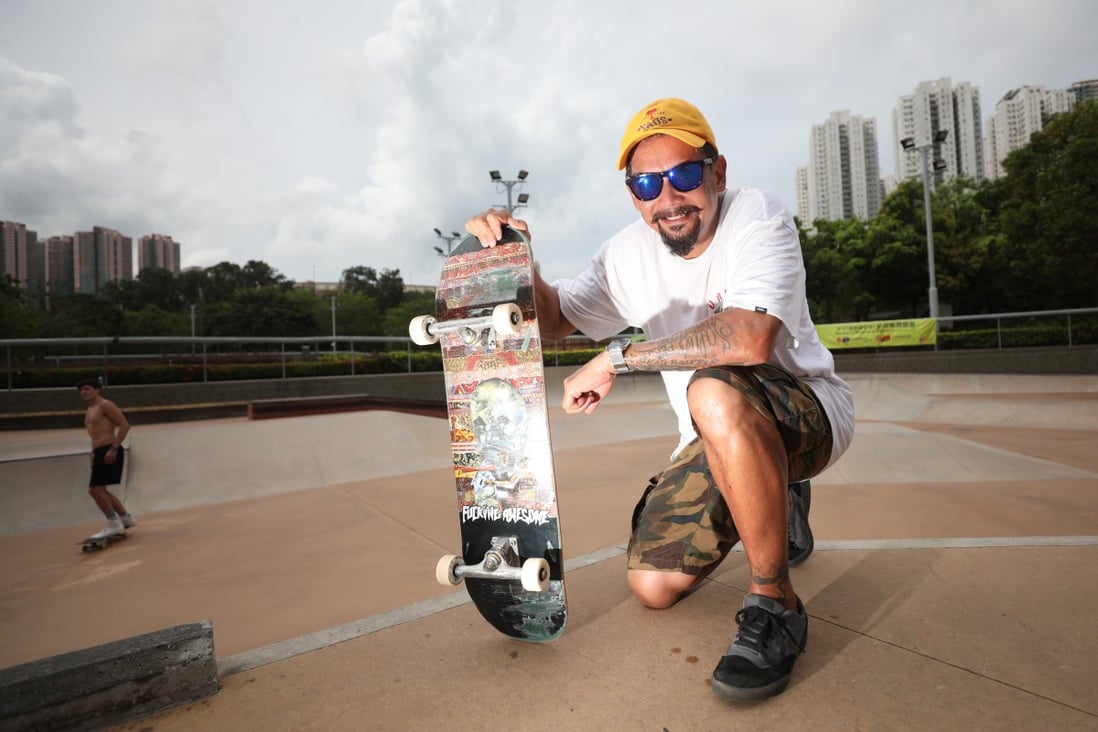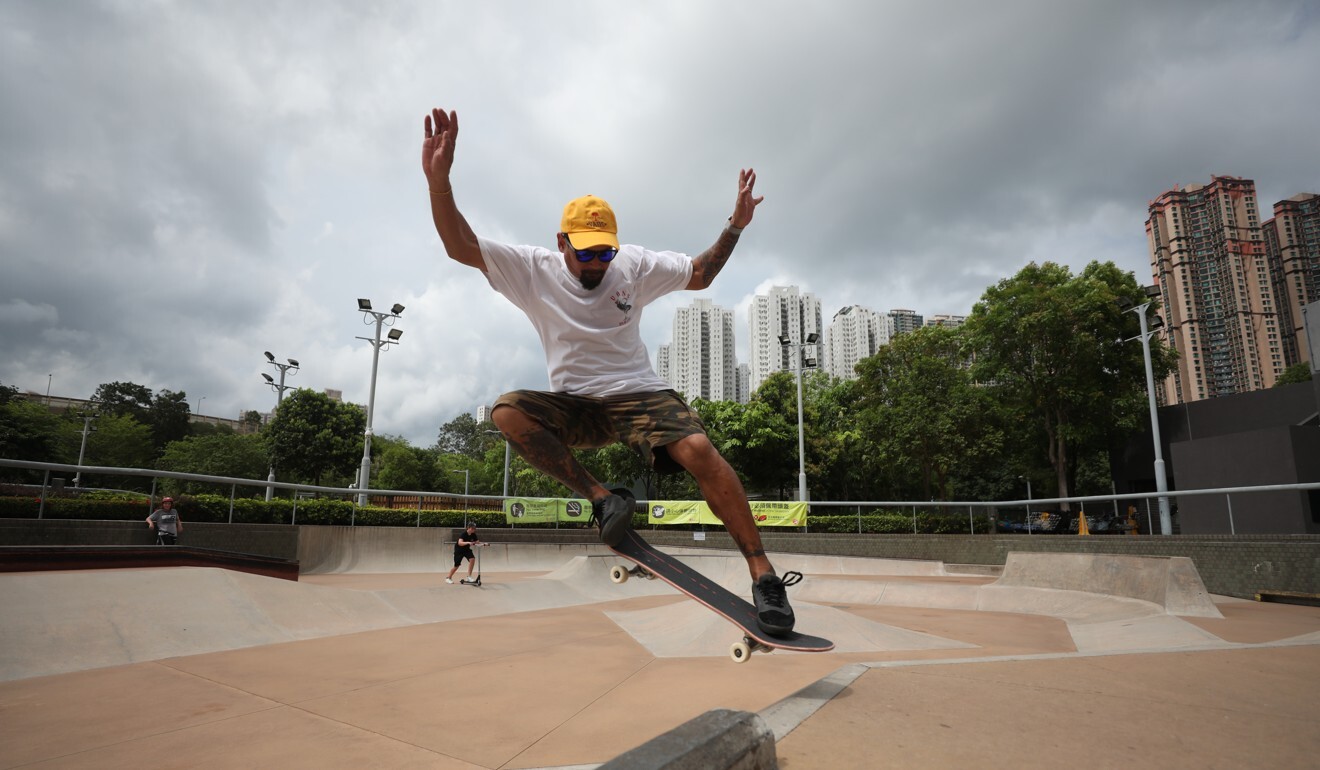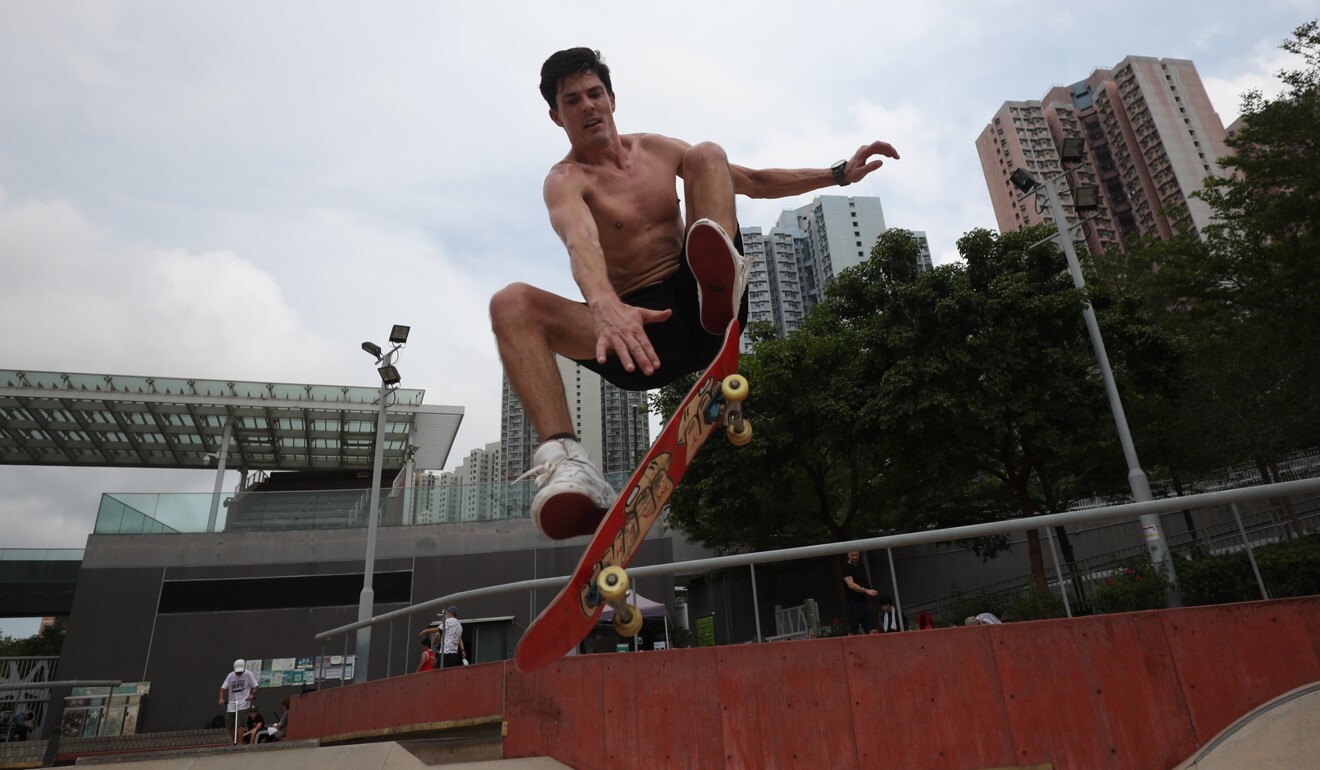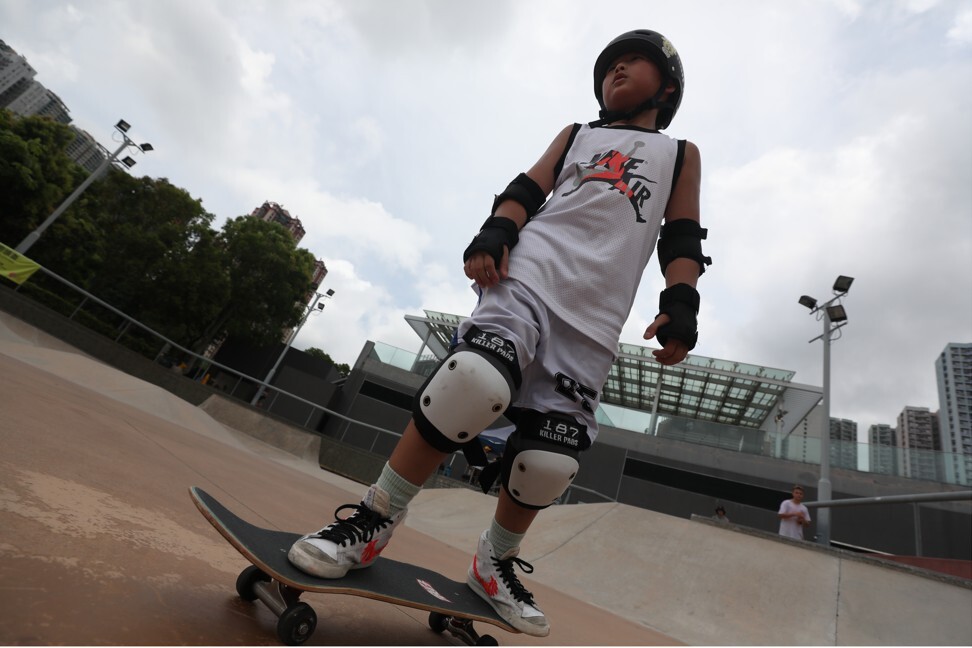
This summer, one of the world’s most famous counterculture sports will make its debut in one of the most traditional sporting competitions.
Two skateboarding events – park and street courses for men and women – will debut along with four other new sports at the 2020 Olympic Games in Tokyo.
Skateboarding, which dates back to the 1940s in the US using crate scooters, has long been associated with modern society’s counterculture as its identity has roots in alternative lifestyle choices, from fashion and music to television and even political ideologies.
Hong Kong’s skateboarding “godfather”, Warren Stuart, who first hopped on a board while attending school as a teenager in the UK, has since relocated back to his home city and built an impressive resume of achievements.
Stuart, 52, said skateboarding’s Olympic inclusion is a debate that encompasses Tony Hawk, one of the modern pioneers of skateboarding who helped the sport gain mainstream appeal. Hawk famously said to CNN in 2016 that the Olympics need skateboarding more than skateboarding needs the Olympics, and the goal for the International Olympic Committee is to bring about a “cool factor” to the Games.

“This is a debate that has gone on for decades,” said Stuart, who has been skating since 1986. “And now that it is included in the Olympics, a lot of countries see it differently. You go do your counterculture stuff, we want medals. And no country has the resources like a country. China can just build skateparks, Hong Kong can just build skateparks, and people will come.”
He admits he never thought he would see the day the sport would make such a move into the mainstream sporting world via the Olympics.
Asia Skateboarding Award winners eye Tokyo 2020 spots
“I never believed it, I never believed it would happen. Because you kind of get jaded over the years with all the b*******. There were so many different skateboarding scenes and brands and contests, it was never unified in any way.”
As a head judge at the 2018 Asian Games in Jakarta-Palembang, as well as being a member of the World Skate International Skateboarding judging adviser panel, Stuart has his feet firmly planted both in the underground side of the sport, and its professional scene. He said the motto “build it and they will come” works best.
“The best way forward is making skateboarding more like football or basketball. Get more public skate parks, get kids into it, and then from there, the sport grows.”
One of the regulars at the Tseung Kwan O Skatepark is Adrian Yahvah. Originally from northwestern Montana, he has been skateboarding for 33 years, and has lived in Hong Kong for 12.

Yahvah said he is a bit conflicted about skateboarding being in the Olympics, but ultimately backs it when he thinks through the whole debate.
“I’m going to put aside my grumpy old man skater feelings because when I started it was such a rebellious thing,” said the 43-year-old. “Nobody liked it and so it kind of empowered you in a sense.”
Working as a sports therapist, Yahvah said he sees the pitfalls of people not getting out of their homes and finding an exercise routine or physical activity to call their own. So if skateboarding in the Olympics helps kick-start some of that, he is all for it.
“There’s so much pressure in the world to be sedentary. So if skateboarding makes kids and adults get off the couch and improve their lifestyle, it’s good for all of us.”
Cambodia’s young skateboarders dream of gold on home turf
One of Hong Kong’s official registered skateboarding coaches is K. Tong. He was trained by Stuart when he first started the sport at the age of 13, and is now helping the next generation.
Tong said he is happy to see skateboarding make its debut in Japan and its inclusion in such a massive sporting event will undoubtedly mean more jobs within the industry for people like himself.
“It’s definitely a good thing,” said the 42-year-old. “Before when we started here it was just skating on the streets, there were no skateparks, and just friends getting together. Before people didn’t really have much commitment to it. But now you can see people are doing it for fun, but also to learn tricks and challenge themselves, so that has to be good.”
Stephen Se, who took up the sport four years ago at the age of 50, said he started so late in life as a way to fulfil a promise to his younger self.

“I always saw skateboarding, and thought, ‘If I don’t try this, I will regret it for the rest of my life’,” said the Hong Kong native. “But it’s always looked so scary. So I went and bought a board to try, and I would go down to outside my building and I was worried people would look at me like an old man skateboarding, so I started at midnight.”
But Se kept with it and soon had the courage to head out to the Tseung Kwan O Skatepark.
“I watched a lot of YouTube videos,” he said with a laugh. “And then I came here and I met Warren. He is a legend in Hong Kong and helped me out right away.”
The Tseung Kwan O Skatepark was established in 2014 and is now one of 12 public venues across the city, with one indoor park currently under construction. Warren estimates there could be thousands of skateboarders in Hong Kong, a number that will surely rise after Tokyo 2020.
From X Games to Olympics hope, Filipino skateboarder’s rise
Se said he is excited to watch the skateboarding events at the Olympics.
“It’s awesome, because when I skate I feel very good. It’s a very good sport, it’s better than basketball or football for me, because every day you can go out and practice and challenge yourself.”
Lionel Kwok, a 56-year-old who took up skateboarding when pandemic restrictions took away a lot of the traditional sporting outlets, said he skated as a child and wishes there was the same acceptable then for it as there is now.
“Not every kid wants to play the piano, or study all the time and learn a foreign language,” he said. “Some kids just want to skate.”







